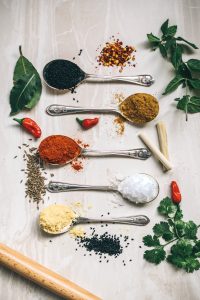Some Practical Tips to Approach IBS
Having irritable bowel syndrome (IBS) can be challenging, painful and extremely uncomfortable, but you can improve your quality of life as well as reducing uncomfortable symptoms by changing your diet. Although these changes will impact symptoms you experience from IBS, they should be seen as a lifestyle change which incorporates a healthier way of eating and your day-to-day food choice.
Irritable Bowel Syndrome (IBS) is a digestive disorder that is estimated to affect up to one in five people, with research showing that twice as many females are likely to be diagnosed with it. Furthermore, young adults below the age of 50 are at a higher risk of developing IBS in comparison with patients who are above the age of 50.
Some research has indicated that irritable bowel syndrome has a genetic component to it however epigenetics play a huge part in this through our lifestyle and nutrition choices. It impacts the way your nerves are structured in your intestines, causing abdominal pain, constipation, diarrhoea, and other uncomfortable symptoms. However, there are ways to handle and manage irritable bowel syndrome to minimise its impact on you. Here are some simple and effective ways to manage IBS…
Effective Ways To Manage Irritable Bowel Syndrome
1) OTC (Over The Counter) Medications
If you suffer from IBS with constipation (IBS-C), then OTC laxatives can be helpful. These range from osmotic laxatives, which increase water inside the colon, to cathartic laxatives that stimulate the colon walls – however, the latter might not be effective long-term. Conversely, if you have IBS with diarrhoea (IBS-D), then over-the-counter medications such as fybogel can help keep your symptoms in check.
2) High Fibre Diet
If you’re an IBS sufferer, try eating larger amounts of fruit, vegetables, nuts, beans, and whole grains. Eating a high-fibre diet can decrease the intensity of symptoms, either constipation, diarrhoea, or both for some people with Irritable Bowel Syndrome. According to the National Institute of Health’s IBS statistics in the UK, 1 out of 6 diagnosed with IBS people use a low FODMAP diet and find it effective. For others, it can make their symptoms worse and they look to alternative diets such as the SCD (Specific Carbohydrate Diet), Paleo, and Ketogenic diets with varying degrees of success.
3) Probiotics
The research to date is very clear in relation to changes to an individual microbiome diversity and abundance with a reduction in both leading IBS symptoms. This is usually due to a standard western diet and/or multiple courses of antibiotics. For some people, probiotics – available in pills, liquid, or powdered form – can alleviate symptoms.
Amongst many benefits, probiotics have shown to maintain healthy gut flora by reducing dysbiosis ( reducing levels of bad bacteria), increasing motility, helping with digestion, and reducing inflammation.
However, it’s not a case of taking any probiotics as the research shows that specific conditions related to IBS require specific strains on which the research has been conducted. Even though some bacterial strains remain a mystery, there are some that have a long history of good research and clinical use.
These include: Bifidobacterium lactis HN019: shown to promote regularity and provide relief from constipation. Bifidobacterium animalis DN-173 010 (nicknamed Bifidus regularis): may shorten colon transit time which can promote regularity and alleviate constipation.
4) Exercises
To improve your digestive health, aim for at least 30 minutes of moderate exercise each day, such as walking. Although exercise isn’t the only way to help with digestive problems such as constipation, abdominal cramps, and gas, regular moderate exercise has shown to be effective in reducing symptoms. Eating meals away from exercising will help prevent cramping or discomfort while working out during your meal times
5) Peppermint and Caraway Oil
Peppermint and Caraway oil are some of the most common natural remedies for those with irritable bowel syndrome. Peppermint has two components: anethole and menthol, both shown to help reduce pain, bloating, and bowel urgency in IBS patients. Evidence indicates that enteric-coated tablets are preferable to capsules as they dissolve slower, giving the oils a longer time to act in the digestive tract.
6) Stress
IBS has shown to have a stress component to it with higher levels of stress increasing IBS symptoms. The mechanism by how this happens is through the vagus nerve which is stimulated through the gut-brain axis. If you suffer from IBS, there are various ways to reduce stress through meditation, mindfulness-based stress reduction techniques, yoga, breathing exercises, walking in nature, and exercise. Trying to detach yourself from toxic people, work environments and family members can be helpful, although some of these situations aren’t always easy to remove yourself from.
7) Food & Drinks
Irritable bowel syndrome can be caused by various foods and drinks, so keep a daily diary recording the foods and drinks that cause symptoms. Some common potential culprits include bread, legumes/beans, sugar, alcohol,, high fodmap foods, and carbonated drinks. Fruit intolerance can be an issue for some IBS sufferers and, since about one in 10 IBS sufferers is lactose intolerant, it might be worth paring back on dairy products to see if your symptoms improve too. Caffeine is an irritant and increases episodes of diarrhoea with some sufferers. However, some patients report improved regularity with caffeine and so, like most aspects of functional medicine, caffeine consumption should be tailored to the individual. Similar with alcohol being an irritant, it should be limited to a couple of drinks a few times a week.
In addition, you can have detailed information about leaky syndrome by reading our article titled 8 Signs You May Have A Leaky Gut Syndrome!








